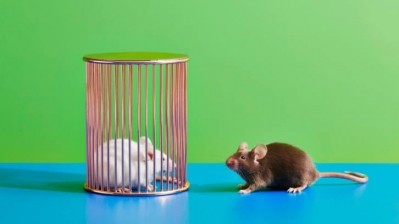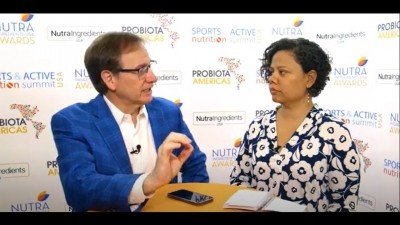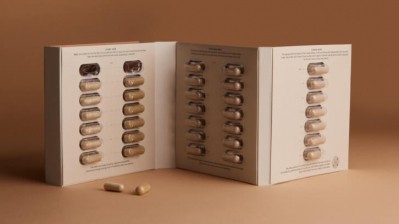Probiotic pair shows anti-stress potential for post-partum women: RCT

Ninety days of supplementation with four billion CFUs per day of Limosilactobacillus reuteri PBS072 and Bifidobacterium breve BB077 were associated with significant improvements in measures of stress and anxiety in the new mothers, according to data published in Nutrients.
“Microbiota alterations could influence a post-delivery woman’s mental state. According to our results, L. reuteri PBS072 and B. breve BB077 are potential candidates that are able to improve stress resilience in the postpartum period,” wrote scientists from Humanitas-San Pio X Hospital, Synbalance Srl, the University of Siena, and the University of Ferrara.
Microbiota-gut-brain axis
The study adds to the ever-growing body of science supporting the role of the microbiota-gut-brain axis. The microbiota-gut-brain axis is a bidirectional interaction between the GI tract and the nervous system and implicates the ability of specific strains to produce key neurotransmitters like GABA (Gamma Aminobutyric Acid), serotonin and dopamine.
Probiotic products on the market are already making stress or anxiety-related claims, with data from Lumina showing that the US is the leading market for such products, followed by Italy and then Australia.
Additional market data from Future Market Insights indicates that the market for probiotic supplements supporting mental health and wellness (“psychobiotics”) is predicted to grow by 44% over the next 10 years, from $140 million in 2023 to $202 million in 2033.
Despite the commercial and scientific interest in the microbiota-gut-brain axis, very few studies have examined the potential effects of probiotic supplementation on new mother’s mental health both during pregnancy and after delivery.
Silvia Castegnaro, Product Manager, and Patrizia Malfa, R&D Manager, for SynBalance, told us that the intricate relationship between probiotics and their impact on mood regulation remains a subject of ongoing research, with a growing body of evidence pointing to their profound influence on the gut-brain axis.
“In this vein, it is essential to underscore the significance of exploring such an untouched topic as post-partum feelings of the new-mothers, baby blues, postpartum depression (PPD) and to challenge the prevailing taboos surrounding it,” they said.
“Indeed, the primary objective of our current study was to deep dive into the potential benefits of two specific probiotic strains in this unique and crucial period of a woman's life. The prevalence of PPD in developed countries is alarmingly high, highlighting the critical importance of understanding and addressing mental health issues that affect women during this significant life transition.
“By focusing our research on the postpartum period, we not only aim to elucidate the potential mood-modulating effects of probiotics but also to emphasize the importance of recognizing and breaking down societal taboos surrounding women's health. This endeavor underscores the pressing need to provide comprehensive support and scientific insights to women during this transformative phase of their lives,” said Castegnaro and Malfa.
Study details
To explore the potential effects of a supplement containing L. reuteri PBS072 and B. breve BB077 plus multivitamins on the maternal mood and mental health, the researchers recruited 200 new mothers and randomly assigned them to receive either the probiotic plus multivitamin mix (vitamins B1, B2, B3, B5, B6, B9, B12, D, and E) or the multivitamin only for 90 days starting immediately upon delivery of their babies.
“The aim of the present study was to further investigate the efficacy of the two probiotics strains in a transitory stress condition, i.e., the postpartum period,” explained the researchers.
Results showed that the probiotic group had significantly improved mood after both 45 and 90 days, according to the Edinburgh Postnatal Depression Scale (EPDS), compared to the control group.
In addition, the breastfeeding quality and the baby’s cries significantly improved in the probiotic group, according to the Breastfeeding Self-Efficacy Scale—Short Form (BSES-SF).
“A possible explanation could be that probiotics may ameliorate the mothers’ mood, who, being less stressed and happier, may differently perceive the crying episodes of their children in terms of the episodes’ number and severity,” wrote the researchers. “Also, it could be speculated that more self-confident and calm mothers positively influence their baby’s behavior. A further potential explanation of this outcome is that crying events could be possibly linked to a reduction in infant colic mediated by the indirect probiotic intake through breastfeeding.”
Castegnaro and Malfa told us that more studies will be needed to further elucidate the mechanism of action, emphasizing the great potential of probiotics in this field, “but the first brick has been laid”.
“As a future research step, it would be interesting to determine the effect of the administration of these specific probiotic strains in perinatal sadness states, collecting information about the breastmilk composition and the modulation of the intestinal microbiota through stool samples analysis of both new-mothers and new-borns,” she said.
Source: Nutrients
2023, 15(16), 3513; https://doi.org/10.3390/nu15163513
“Beneficial Effects of Limosilactobacillus reuteri PBS072 and Bifidobacterium breve BB077 on Mood Imbalance, Self-Confidence, and Breastfeeding in Women during the First Trimester Postpartum”
Authors: F. Vicariotto et al.














